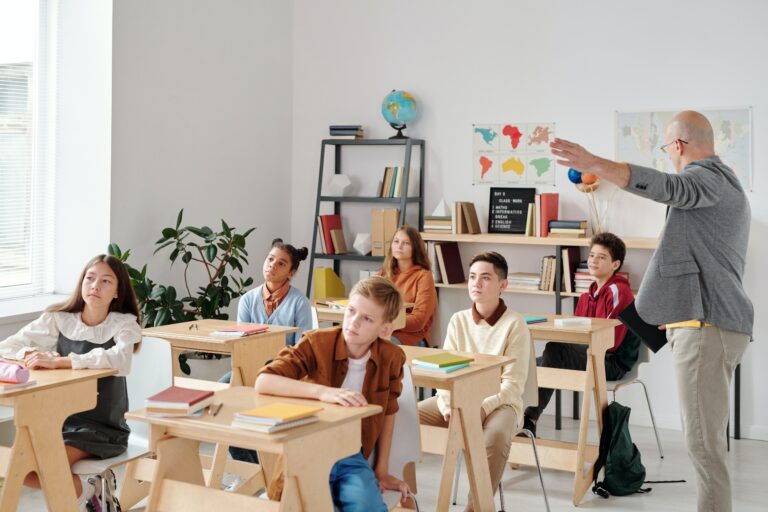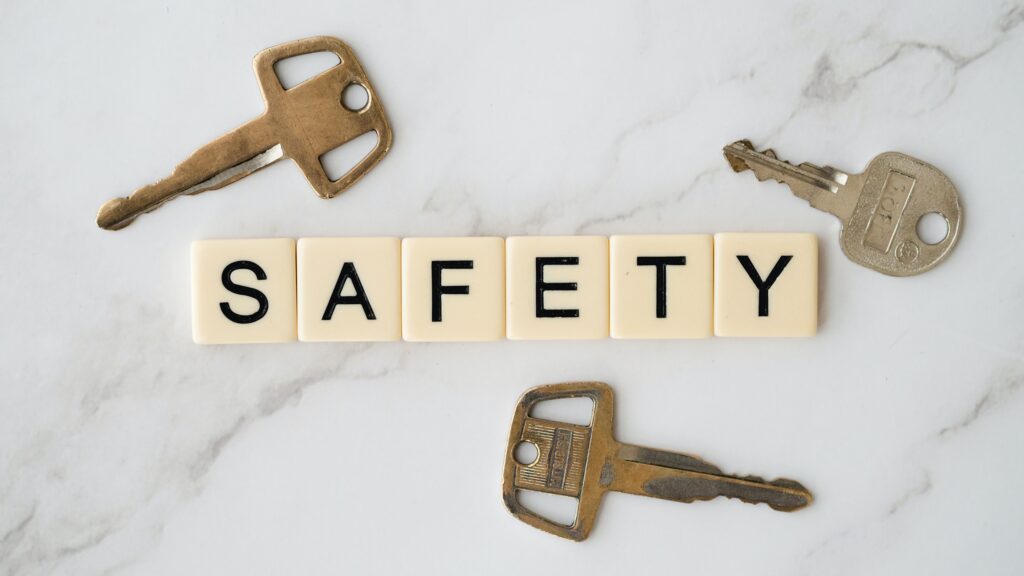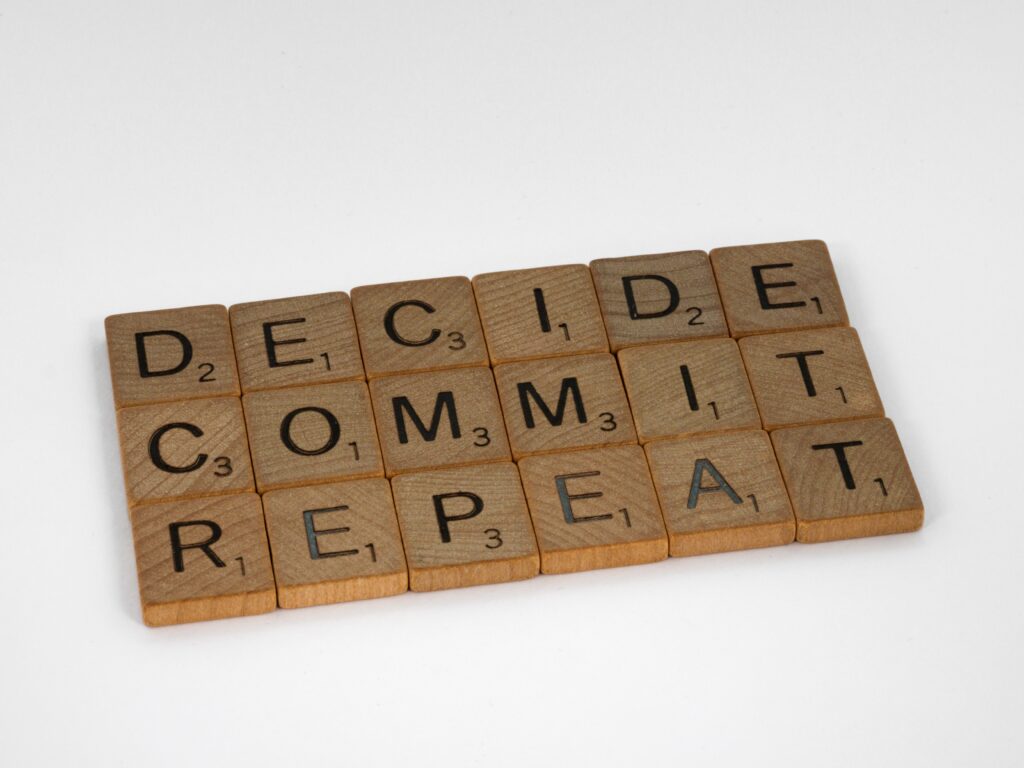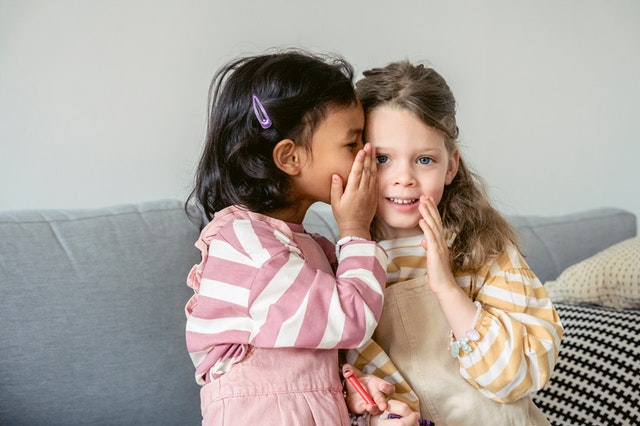“It’s not how smart you are that counts, it’s how clever you can make your students feel that matters”
Please Make It Matter!
This blog is based on the idea that if you realise how important your thoughts and decisions are to the life outcomes of your students, YOU will MAKE your actions MATTER. Each blog is given a MIM Episode. MIM = MAKE IT MATTER
3rd January 2021
"The best you, can be reached through reflection"
MIM
Episode 15
Make It Matter:
Reflective Practice

WHAT IS REFLECTIVE PRACTICE FOR?

Teacher Training drills trainees about the importance of pedagogy. INSETs hone in on reflective practice and safeguarding. All school based practitioners know that the fundamental question that needs asking, is ‘when do we get time to implement this?’ This is often referred to as the white elephant in the room, and its answer can be the strong foundation for outstanding staff and student wellbeing.

I have often discussed with my colleagues about reflection being the cornerstone to teaching. Whether it be reviewing the outcomes of your students’ achieved grades, or reflecting on how things went previously, thus seeking improvements, is a constant professional endeavour.
For the purpose of this discussion, the focus is on how reflections (ideally immediately) on interactions with students, can improve classroom relationships and consequently quality of teaching and learning. This without a doubt offers less stress and greater job satisfaction.

FINDING YOUR REFLECTION POINT
I remember my first induction as a newly qualified teacher (NQT). I had just finished what was for me a very daunting year of teacher training and felt I hadn’t learnt much. Yes I had been immersed in school life and culture but hadn’t truly learnt the art of teaching. I had produced piles of documentation to prove I had been practicing teaching skills at my placement schools. I had sat in lectures for and read countless pages on reflective practices, but still sensed a gaping hole in my abilities as a teacher. It wasn’t until years later as an experienced teacher that the answers I sought came to me.
The answer was in reflection, but in my case it had been the lack of it during that training year. I and the rest of my cohort had been overloaded with the task of producing so much documentary evidence to certify our practice that it left little time to do actual reflection. Reflection is what you do in thought. It can be enhanced through discussion with like minded individuals operating in similar fields. It is about drawing from within oneself, how best to improve a particular thing or event. LEGAL CLAUS: This is in by no means the only method of reflection.

Anyway, in that induction, the deputy head informed us how to handle a student’s disclosure on safeguarding matters like abuse. To cement the importance of this he explained that a former student had once stood up in an assembly to shout out that her father had raped her the night before. This was a real shocker for me, but little did I know how more was to come over the years. I spent much of that NQT year thinking how I would handle being the adult a student had confided in about being abused. I had many thoughts on how I would handle my responses so that I never asked leading questions of that child. Doing so may jeopardise any future prosecutions.
Fast forward a decade and there I stood in a maths lesson trying to enthuse a disengaged student. This was an alternative provision and the girl had just recently been excluded from her mainstream school. The topic was algebra and she assured me that she understood the work. An apparent strategy, but a poor one at that to avoid being pushed to do the work. Having given her further opportunities to try, I approached to offer help. Initially this seemed acceptable to her, so I sat in the next chair to illustrate for to solve the problem. However she quickly took the chance to challenge the need for maths and to express how irrelevant it would be in her life. Seconds later, I found myself being told to get lost, then get out. I responded that it was my classroom and that I am there to teach.
Having not got the response she wanted, she stood up, called me a freak, followed by a barrage of expletives before walking out. Judging by other students’ reactions, I realised that I wasn’t the only one thinking what was that all about. I joked that she had a charming personality, but asserted that it was better that she left, than stayed to be abusive. I tried to mask my irritation at her behaviour, but recognised that there was some tension in my voice. I acknowledged hers had been secondary behaviour (MIM8), but was nonetheless quite annoyed at that very moment. Good riddance was at the top of my tongue (not verbalised). Years of experience had taught me to go into auto-pilot mode in striking a balance at such moments, between my giving off outward emotions and keeping the flow of a lesson going, a.k.a professional conduct.

CONSIDER POTENTIAL ROOT ISSUES

Now anyone that has had a similar experience (I suspect at least in the high 90% of school staff), would not be criticised for saying “typical of students”, but may modify this stance with more information as I ended up doing.
Prior to joining the school, we had been informed that there were serious safeguarding concerns around the very young lady. She was at risk of being sexually groomed and there was a high probability that she been exposed already.
Let’s rewind to prior lessons. The student had consistently been politely (kept saying no thanks) avoiding work. In thinking (reflection) how to get her to start engaging, it occurred to me that from my standing position, it may have seemed to her that I was talking down to her. Remember children don’t get sent to alternative provisions, for accepting normal modes of school practice. Thus I adopted the approach of sitting next to her to talk from and appear to be on the same level. I had taken on board one of her comments before walking out of the room. “Do you think I’m dumb?” Please note students also commonly take this stance of refusing help, to avoid looking inferior to their peers.
This turned out to be a failed strategy because it took no account of the safeguarding concerns. First point, I am a man and she was a girl. It was upon reflection that I began to appreciate that just maybe she was not comfortable around male figures. This was followed with a realisation that a groomed child may be freaked out by an adult male being too close to them. The clue to this was when she called me a freak before walking out.

WHERE CAN REFLECTION LEAD TO?
This reflection helped me to recalibrate my mood. Although never acceptable for a student to insult a teacher, or for any teacher to tolerate insults, my new position enabled me to have the same student back into my classroom when she was ready. This was a few days later. During this time she was questioned by a female colleague, as to why she had been refusing to attend my lessons. Her response was that I creeped her out. She complained that she heard me breathing and that it reminded her of an older man that did that to her.

The explanation she offered confirmed my conclusions from my reflections. Unfortunately it was also a raw reminder that this was a young person with a likely history of sexual abuse.
The reflection enabled me to reach emotional calmness and helped with reaffirming why I came into teaching. This initiated my creation of ‘Teaching as a rewarding career‘ flyer.
1st October 2021
"Home is where you find emotional comfort"
MIM
Episode 14
Make It Matter:
Home from home

PARENTS AS PRIMARY EDUCATORS OF CHILDREN

There is a long held belief that parents are the primary educators of their children. This stems from the fact that it is the parents that provide much of their children’s care and nurturing as they grow up. Special bonds are formed, even from the moment of birth. Scientific evidence suggests that new babies recognise the voices and scents of their mothers. This link is strengthened as children grow to rely on their parents to provide food, shelter, clothing, friendship, advice and emotional comfort. All these factors are critical for normal healthy growth. It has been established that the absence of any of these, can be a catalyst for unstable behaviour seen in school aged children, or the seed for violent activities by young people in our societies.
DAMAGED BUILDING BLOCKS FOR EMOTIONAL BALANCE
To put this into visual context, it is necessary to imagine each of those factors as bricks for building houses. If one brick is damaged, there would be no noticeable fault.
However overtime the decay would potentially accelerate the extent to which the building will become ruined. If poor or dodgy materials are used in putting up a building, or the soil upon which it is built is soft or the foundation is weak, the outcome is certain to be the same. A collapse. Holding such an image in mind, it becomes possible to understand why a child with even the smallest of disruption in their upbringing, can pose significant problems in classrooms. Somewhere along the line they would have missed some vital life lessons thus inhibiting their ability to self regulate, to recognise appropriate behaviours or appreciate the negative impact their behaviour is having on others.

EROSION OF PARENTAL POWERS
This global acknowledgement of parents being central, still holds true to a large extent. Unfortunately there are notable signs of a shift from this position. For centuries, parents and their immediate community held a dominant sway as to what and how a child should think, speak and behave.
The advent of successive ACTs and policies by government, has given rise to the power of the State. This change has justly afforded young people greater protection and rights, but this is coming at a cost. The expression ‘Nanny State’, is being used more frequently to describe our society’s relationship with our government. This phrase gives an insight to a slow but growing trend in the abdication of parenting powers from parents to the State. There’s no doubt that this handover of power has been voluntarily by some, but does not lessen the long term impact.

FACTORS THAT CAN INHIBIT PARENTAL INFLUENCE
The influence of socio-economic factors like unemployment rate, poverty, and literacy levels, cannot be diminished, however our current position is one in which food banks and charities now feed thousands of families. Although it can be argued that these helpful services are locals, helping their communities, it doesn’t change the fact that parental power is being robbed.
This is a change in family dynamics, a distortion in social fabrics. The march in power away from parents can be seen in other areas. There’s the implementation of free school meals, the inability of parents to agree or refuse the type of education or medical treatment their older children can get. There’s the financial penalty or criminalisation of parents for their children truanting and the ability of social services to forcibly make children a ward of the State. All these systems can affect and do affect how families and societies operate.

HANDING POWERS TO SCHOOLS
A question educators may be pondering is, how does this brief lesson in social engineering relate to their jobs. To understand its relevance to teaching, it is necessary to acknowledge that such changes normalise for each generation their acceptance of weakened parental responsibilities. The end result is that in trying to ensure children are familiarised with social expectations and national standards, schools and thus teachers are then charged with the duty of imparting much more of the knowledge that had historically been taken care of by families and the communities they lived in.

WHO NEEDS POSITIVE GUIDANCE

Photo by Max Fischer from Pexels
A teacher reflecting on this from their standpoint of view, would naturally try to imagine how this plays out in their classroom. There would be the personal questioning of which students in their lessons most likely fall into the category of needing parental advice. Looked after children, (LAC), would probably spring to mind. Good start but can’t end there. The very fact that nearly all young people consume vast amounts of data online, shows that useful adult input is always needed to direct their thinking and actions.
Children, even those as young as five, are not exempt from the many questionable information and sources dumped on the internet. This in itself can be described as the tip of the iceberg, because depths of concern increase with online grooming and bullying, as well as the wasted opportunities for learning basic life skills like cooking.
This makes positive teacher influence even more critical. Indeed it is suggested that it’s made a core element of school life. This has already been attempted in the form of Physical Health Social Communication & Education (PHSCE), however has not had the tangible impact it was intended for. Students reported finding the subject boring. Many explained how they found creative ways to avoid the lessons. For them it felt like being imposed-the-obvious. This implies an explicit redesign of the subject contents, in collaboration with those very age groups it will be targeted at.

THE NEED FOR SAFE SPACES AND SECURE BASES
A fact that is common knowledge to all school based educators is that schools are far more than just places for teaching and learning of specific subject knowledge. There’s the securing of learning spaces to make students physically safe. This includes a wide range (but not exclusive) of things like security checks on adults, fencing of schools, locks on doors, patrols on corridors by senior leadership and upholding anti-bullying rules. There are also the less measurable and intangible measures needed to make schools ‘feel’ like safe bases. Please note that there is an emphasis on the word feel. If for any reason, a student does not feel secure in a school or particular class, they will start truanting. This is irrespective of the consequences of doing so.
Teachers who are not in tune with minute sensitivities their students may have towards feeling humiliated or their prides being dented, could for example pose questions that make those students feel dumb. Professionally ‘dumb’ is not an appropriate word to use. However it is the exact terminology students use to express how they feel or made to feel by their peers. I have just had a KS4 student join my class. She had missed two years of education. Having asked her what I believed was a simple question of identifying the first ten odd numbers, she hesitated and looked lost. Another student next to her called her dumb. The expression on her face, made me realise immediately the mistake I had made and that she was upset. To my pleasant surprise, she maturely asked to go to the toilet, but upon returning refused to participate any further in the lesson.
On that occasion I found a strategy to re-engage her, but I too had learnt my lesson. My assumption at what could truly be described as an embryonic stage of her education, had nearly destroyed her confidence in my room being a safe base. The emotion she exhibited may be regarded by adult standards as being a ‘storm in a teacup’. However, the needed acknowledgement here, is that the teaching of how to cope with such emotions, have historically been the ‘bread-and-butter’ of parenting. The tools for bonding communities, the engendering of mutual understanding and acceptance by young people of adult advice in their lives. This is the basis of the African proverb that “it takes a village to raise a child”. That is why in such cultures, instinctive respect for elders is still the norm. This is why in their communities, teachers can be held in high regard.

TEACHERS AS BRIDGES

Photo by Max Fischer from Pexels
Feeding the emotional needs of the young people, that make up our student cohorts, can at times be nothing short of life saving. Teachers, whether they realise it or not, are often called upon to be the bridging gap between the mindsets of many students and the expectations of the very communities they live in. That is because their minds inform certain behaviours that challenge the traditions their communities have abided by for years. This creates conflict on many levels, from immediate families to the nation as a whole.

CONSEQUENCE OF IMPAIRED JUDGEMENTS
Young people are known in general to act impulsively, without judgement of consequence. Imagine then a young person with voids in their emotional upbringing. In the event of an incident, an adult could rationalise what went wrong and why. Hopefully they can independently identify their own errors or faults in the outcome of that event.
A student, with cooling time and guidance could be helped to tease out where they went wrong and the lessons to be learnt from the incident. A student with impaired emotional upbringing could find it much more difficult to arrive at a similar understanding. Indeed it is quite possible that they would perceive the whole situation as the ‘others’ being unnecessarily difficult, not wanting to understand their position or being too judgemental. That student would likely get even more defensive, giving off the impression that they are being rude.
What do you think would be the probable outcome for such a student? Detentions and phone calls home, would register high in the likely reactions school staff would take. Unresolved, repetitions of similar situations and how they are handled, would teach that student to act to their perceived personality (reputation or street cred). If the school doesn’t change its approach to handling the young person, where would it expect that student to learn how to respond appropriately? The reality is that the traditional primary educators for teaching self regulation, the parents, are for some reason already not performing those duties. This is where ‘home from home’ kicks in. This is where the duty of care implies that it is the ethical responsibility of the school to nurture that student. Appropriate agencies need to be pulled in to collaborate with the school for the benefit of that young person.

PUTTING STRATEGIES IN PLACE
Individual teachers need to familiarise themselves with the recommended strategies from such agencies and other professionals as a starting point. Becoming informed of the circumstances surrounding that student is important. Empathising (MIM Episode4) with those circumstances and formulating own best practices are crucial.
Establish clear boundaries and be consistent (MIM Episode5) in dealing with that student and indeed all your students. The student will likely recognise and appreciate your efforts to reach out to them. This will begin to build bridges of emotional bonding with them, leading to mutual respect. The student will begin to see you and your classroom as a safe space and a secure base. They will feel comfortable and want to attend your lessons, because you would have established a learning environment that feels like home. You are now that exceptional teacher whose decisions and actions matter.

NEXT STEP
Click the button below to request for a free booklet on ‘Why it matters to matter’. It explores strategies for gaining a better understanding of your students and supporting them to be more responsive to learning.
20th August 2021
"No child is born stupid, but every child has the capacity to learn from their experience"
MIM
Episode 13
Make It Matter:
Learnt behaviours

Children do more of what they see adults do, than what they hear adults say. This understanding is the foundation of what is regarded as good classroom practice, and that is that teachers should model what they expect of their students. This knowledge is at the centre of outstanding behaviour management, a recognition that behaviour, whether it be good or bad, is learnt.
Modelling what you want the child to learn


Those that go into teaching do so with the intention to impart knowledge, to educate young minds. They would most likely have prior ideas and opinions of the challenging nature of school life, however very few if at all would have truly been prepared to cope with the challenging mindsets (MIM Episode8 parts 1&2) that students can present.
The one thing that distinguishes new teachers from those that have been working in schools for years, is experience. However more importantly is that the one thing that makes exceptional teachers stand out from everyone else, is their capacity to go beyond the expected. They do not simply accept that a child in their class is badly behaved and should be punished, they try to find out why the child behaves in that undesired manner, and then set out to implement strategies to help that student. They in essence embed empathy (MIM Episode 4) in their practice. They recognise that no child is born stupid, thus have learnt their behaviour from someone and their environment. What constitutes an environment is vast to define, but family, friends and income play vital roles.
To illustrate the significance of this, during my first year as a newly qualified teacher, the most experienced teacher in the school only contacted grandparents to resolve concerns about her students. She explained that she had observed that young people still held their grandparents in high regard, but had moderate respect for their parents. This she said owed often to how the parents related to their children, or that the children often saw disharmony between their mum and dad, or that the parents were disengaged from their children’s lives, or that owing to low income, children took matters into their own hands. Ultimately this often led to emotional conflict that disempowered the parents, making it difficult to reign in their children’s excesses, as well as making it very challenging for teachers to have control.

Many may choose to disagree with her interpretation, but what was indisputable was that she always eventually got a hundred percent compliance from her students. It should be noted that this was in an east London school, in a very deprived neighbourhood, with serious behaviour issues in their student population. Many of them came from families whose generations had had little education, and were very reluctant to engage the school. This less than encouraging situation was for such children, their environment.
INFLUENCE OF ENVIRONMENT
Prior to becoming a teacher, I was an IT trainer. I taught a grandmother who sent her twenty one year old grandson to join my computing course. She had also invited him to live with her. Her actions were designed to remove the influence of his older brother, who was a drug dealer. She had fortunately intervened at the right time, encouraging me to mentor him. He became my best student and eventually my assistant. I wrote him a reference that helped secure a job as a Systems Analyst. This outcome was achieved because his grandmother understood her role as a caring family member. She also understood the impact the environment he had been growing up in was bad for his future, thus the need for the change.

Amongst my earliest experiences as a teacher was having an assistant headteacher explain to me that his black eye was caused by one of our students. The boy who had exhibited a catalogue of aggressive behaviours, had punched him. The student was familiar to me, as he had threatened to beat me up in my first month of teaching. I subsequently found out from other students that the boy was routinely being beaten up by his father, and so regularly came to school, choosing to take out his anger on anyone that irritated him. This student’s home environment had set the destructive path he followed. Unfortunately for him, the attack on the staff led to his permanent exclusion.

INFLUENCE OF FAMILY
The menace of learnt bad behaviour is ever present. Adrian (pseudo) was an infamous student at the same school for bullying. He had a cordial relationship with the staff, but made the lives of many of his cohort unbearable.
His older brother had been imprisoned for terrorising many neighbourhoods. He learnt his aggressiveness from that brother and took the attitude that as long as he did not do anything violent enough warranting a criminal record, then anything he did was legal. His default position on the school’s anti bullying policy, was that it was simply a joke, as his brother had done far worse over so many years before he gained the attention of the police. His attitude was further cemented by his senior brother’s gang members that had been expecting and encouraging him to follow in those criminal footsteps. Regrettably his exploits had deteriorated to the extent that the State stepped in to make him a Ward of local authority, a looked after child.
Experiences in a north London based academy, has given me the most fright of my teaching career. I was physically assaulted by a very muscular year ten student that nearly strangled me on my first day. I was there as an agency staff and saw that the students more or less ran the school. I was horrified on the following day, to find the same pupil trying to force another student out of a fourth floor window. As if that was not bad enough, to my dismay the incident had been an attempted act of revenge. Sadly the boy came from a community that was embroiled in tribal war. It turned out that the student’s uncle was murdered in their homeland. Culturally, all family members anywhere in the world were then required to exact equivalent punishment on any family member of the identified perpetrators.

Regrettably this boy was aware of this, was instructed and felt obliged to try to murder a fellow student that was effectively pointed out for the vengeance. His family and community environment taught him such dangerous and vulgar behaviour. This naturally does not justify his behaviour in any way.
CHILDREN ARE LEARNING AS THEY ARE WATCHING
The description above is an example of extreme learnt behaviour, but is not unique. A primary school child was seen slapping his mum at the school gate, when she came to pick him up at the end of the day. She asked him why he did that. The boy asked her why she was complaining, that after all his dad slapped her everyday and she never did anything. He threatened her that if she did anything, he would tell his dad. As shocking as this may seem, it is not far removed from what my former colleagues are witnessing daily with a student aged five years old. His response to anyone that upsets him or stops him doing what he wants, is to spit at them. This applies to children and teachers. The question this behaviour poses is, was it learnt and if so from whom?

Tragic would best describe the outcome for one of my previously excelling students. The academic year had begun with him aiming for top GCSE grades. His subject knowledge was strong and his focus was there. Things started to unravel rapidly as the separation of his parents and their subsequent inability to work together in his interest, created instability. He sought comfort with youths of his religious background. Unfortunately some of these individuals were drug addicts. Before long he took to smoking cigarettes. His prolonged presence in their company led him to cannabis and experimenting with other substances. Though he remained a polite student, he quickly lost appetite for education, resulting in low grades. Like in previous examples, he was not born stupid, but learnt from the environment he lived in.

Empathy goes a long way to understanding others. This is what exceptional teachers are good at. They recognise that their responsibilities goes beyond academic content. They see, understand, cherish and champion the parenting role that comes with teaching. They acknowledge that part of their duty of care for their students, encompasses mentoring and directing their students to make the right life choices. There is a recognition that punishment alone as an instrument of correction, is ultimately doomed to fail. They understand that showing appreciation for every positive action taken by their students, reinforces the need for those students to exhibit the right attitude for learning. Exceptional teachers do not dismiss or disregard their students on a whim. They make every opportunity to matter. MAKE IT MATTER.

NEXT STEP
Click the button below to order a copy of Gorilla Masks THE EXPERIENCED TEACHING YEARS. It explores learnt behaviours and the reasons behind them. It is written to help school based educators to understand what’s behind the negative behaviours their students may be exhibiting. It encourages educators to use empathy as a powerful tool for developing effective behaviour management strategies.
16th July 2021
"Appreciation is a powerful tool for encouraging effort and progress"
MIM Episode 12
Make It Matter:
Learning in a safe zone

REACTING TO CRITICISM
“You are a stupid person.” This is a statement that has been said many-a-times, in the heat of the moment that may or may not have been meant. Unfortunately no matter what the intentions were, the effects are always negative.
The individual being told that would have instinctively reacted by responding with an equally abusive set of words that escalates the situation. A child told that by an adult would understandably begin to resent that adult. In a school situation, the student would resent the teacher and probably start finding reasons to avoid that teacher’s lessons. At the centre of such conflicts is a person’s pride. A wounded pride will not keenly return to a place or source of the hurt, for it is no longer a safe zone.

Collins English Dictionary defines safe as “uninjured, out of danger, not involving risk”. Anyone, whether it be an adult or a child, that doesn’t feel safe in a place, will always seek to escape or avoid that place. As indicated in the first paragraph, a person whose pride has been bruised, would consider that particular environment as involving risk. No one takes kindly to being insulted, thus students that feel offended by teachers, would likely disrespect those teachers. That creates barriers to engagement, resulting in limited or no learning.

FUTILITY OF CRITICISM
An important observation that needs to be made, is that feeling safe emcompasses a very wide spectrum of feelings. Individuals need to feel physically, intellectual and emotionally safe before they can build positive relationships with others, objects or places.
Dale Carnegie (1888 – 1955) once wrote that “Criticism is futile because it puts a person on the defensive and usually makes them strive to justify themselves. It wounds sense of importance and arouses resentment.” Talking to a person in a manner that tries to diminish their self worth or confidence, threatens their emotional safety. This is one of the reasons why misbehaving students would sooner find faults in teachers that negatively criticise them, than acknowledge the flaws in their own behaviour.

SEEKING SAFE LEARNING ZONES
Parents and their children do not apply to random schools. A level relationship, no matter how small, needs to be established first before any engagement will take place. They will carry out research and look for feedback from other people that already have a credible link with the school. Typically speaking to parents who have children at a school of interest can be quite reassuring. This single scenario shows that the students are the single biggest assets and promoters of any school. Negative feedback can eventually kill the reputation of the school.

PARENTAL RESPONSE TO UNSAFE ZONES
If parents feel that school is unsafe, they will instinctively avoid applying or withdraw their children from there. If a school doesn’t feel welcoming, then getting meaningful engagement from the parents will be very limited.
If parents are having a difficult family life or feel school is unsupportive of them, their situation or their children, they will be reluctant to be cooperative. This situation can be aggravated if that parent is bombarded with negative calls about their child’s behaviour. It is important to recognise that parents of children that repeatedly present challenging behaviour, may have been receiving such calls for years. This can be demoralizing and so would have started to withdraw from communicating with schools for quite some time. Schools for them would have stopped being intellectually and emotionally safe zones.

WHEN NEGATIVE PERCEPTION TAKES HOLD
The scenario described above recently played out in my school. The final year student involved, had been excluded from two other schools before coming to us. He was quite an intelligent young man and had a good understanding of how education could benefit his future.
Unfortunately his mum had built up a negative perception of schools and teachers, owing to years of getting troubling phone calls about her son’s behaviour. She routinely avoided answering calls from the school and refused to attend any parents’ evenings. Teachers dreaded phoning her because her defensive mechanism was to reject anything said about her son and she even became abusive towards us. On one particular phone call she told me that “you teachers are useless. I’m fed up with you and my son is fed up with you. Anyway he’s only got a few more months with you.”

WHY CRITICISMS DO NOT PROVIDE SOLUTIONS
This parent’s words resonated with me because it immediately explained a lot about the student’s behaviour. He had himself used similar words towards a number of my colleagues, and shows that like his mother, he shared a sense of schools not being emotionally and intellectually safe places to engage with. Both mother and son spent more energy trying to justify their own righteousness and the stupidity of schools, rather than address any concerns around his behaviour. This illustrates that even with the greatest of intentions, criticism at best may prove a point, but never provides solutions. It does not make stakeholders feel safe, it only alienates them.

EPITOME OF STUDENTS FEELING UNSAFE
Children that are school refusers, often epitomise students that don’t feel schools are safe zones for learning. Avoiding is a tool for them to express their discomfort within the school. The catalyst for any anxiety these students have, may not have originated from the school.
However for one reason or another, they have concluded that being in school only adds to their problems. It may be something trivial, like not being allowed to do what they want when they want. Logically schools have rules that their students are expected to conform to. However students with problems at home can’t connect when they are in a state of anxiety. This is discussed in an earlier blog, MIM Episode 3 and in Gorilla Masks THE TEACHER TRAINING YEAR.
In one example of a school refuser, the student’s father had been imprisoned. This broke the father-son bonding sessions, during which he often got the things he asked for. In the absence of this, he tried making unreasonable demands from his school and when this failed, he began to avoid lessons. This situation was made worse by members of staff telling him to stop being silly. He naturally began to resent the teachers and persisted to avoid going to his lessons.

WHEN PARENTS & STUDENTS FEEL SAFE
Collins English Dictionary definition for inviting is “tempting, attractive.” A safe zone is an inviting one, and this is where all schools need to be. There is also a need to fulfil the perception as well as the reality of being a safe zone. School refusers based on a history of being bullied, will likely not want to apply to a new school that has a bad reputation. The school itself may actually be good, however having a poor image in the community stemming from their students’ conduct outside of school hours, effectively spells an unsafe learning zone.

SCHOOLS AS SAFE LEARNING ZONES
Schools as safe zones for learning need to include parents and students feeling valued. That sense that school will acknowledge that they have useful ideas that to contribute. They need reassurance of boundaries that lets them know what they can do and what’s not tolerated. In the case of bullied students, this gives them confidence that they will not be bullied since bullying is not allowed.

THREE TYPES OF SAFETY
People need to feel physically safe to venture, emotionally safe to engage, and intellectually safe to contribute their ideas, knowledge and understanding. They need to feel welcome and supported to operate comfortably.
Students that have emotional trauma need something to gravitate towards. They need enjoyable lessons to soothe or at least distract their attention from their concerns. Cooking for example gives instant gratification, a reward. Students have ownership so can’t complain about the outcome. It’s a lovely thing for them to do, it’s calming, inviting and gives them the tools to gain a sense of wellness. This is very important in this day and age of PlayStation and diminishing hobbies.

NEXT STEP
To understand and implement measures that assure schools are safe learning zones, is a demonstration of empathy, MIM Episode 4. Click the button below to request for a free booklet on ‘Why it matters to matter’. It explores strategies for gaining a better understanding of your students and supporting them to be more responsive to learning.
2nd July 2021
"Education precedes wise choices"
MIM
Episode 11
Make It Matter:
The choices students make,
makes them

INSTANT GRATIFICATION
Instant gratification is a signature of youth.
Intrinsic reward comes with mindset growth.
Life moves on like light when we are young.
Too fast to acknowledge and learn from the things we’ve done wrong.
That’s why regret seems to reside with those with experience.
Or for those that have limited their life’s existence.
There’s wisdom in recognising and grasping opportunities.
That’s part of self reliance and taking on our duties.
These carefully chosen words are often mystical to the pre adult generation.
Even down to the simple concept of getting an education.
Responsibility to and for self, for some can conflict with their notion of rights.
Sadly leading towards a path that gives teachers frights.
“You can’t make me”, may sound all too familiar.
Utterances from students whose behaviour comes across as peculiar.
They have barely started on life’s journey.
Already making choices that could end in sorry.

SAME START - DIFFERENT OUTCOMES
At my school’s Record of Achievement speeches, for year 11 students, a deputy head told a story about two adult brothers who were twins. Both he explained, were brought up by parents addicted to drugs and alcohol. Their childhood lives were in poverty, particularly as much of the family’s feeding money was spent on substance abuse. Concerns were often raised in school about their unkempt appearances and possible neglect. The young twins grew up witnessing violence, drug dealing and all manner of mayhem.

One of the brothers in his adult life was by now in jail for drug dealing and a raft of other offences. The other became a settled family man, a loving and caring father to his own children. He devoted time for them to ensure all their emotional and physical needs were met. When the twin in prison was asked how come his life ended up in a mess, he replied “look at my upbringing, what choice did I have?” When his brother was asked why his life turned out the way it did, he responded, “Look at my upbringing, what choice did I have?
Two lives with identical starting opportunities and environment, ending up totally different. The separating ingredient being the choices each twin made. One decided that life was hard, opportunities were few, so why try to fight it. The other however concluded that because of the very same difficult upbring he had, he would fight and do whatever was necessary to ensure his adult life and those of his own children would not be the same. He made the decision to work hard and be committed to getting and deserving a better future.

OBSERVING EARLY DISTINCTIONS
In a morning briefing four days later, we were informed that two non identical thirteen year old girl twins would be joining the school. Though living in the same household, a distinctiveness was becoming apparent in the choices both were making. One was opting to engage with education, whilst the other saw school as an opportunity to socialise. Undoubtedly if the two personalities were to be interrogated fully, evidence of educational barriers like dyslexia or Speech, Language and Communication Needs, may be found. These are known to force young students to mask their poor understanding, by playing up rather than engage.

Being aware of this, school took the measure to have both girls assessed for conditions that could stop them learning. Despite these acknowledgements, an undeniable fact surrounding these two young twins is that the one choosing to study will likely attract greater empathy and support from teachers. This single point alone has the potential to create two very different future outcomes. One gains good grades, secures employment and managerial positions that equates to a decent standard of living.
The other twin presents a less compliant attitude for learning. This results in fewer teacher support that yields lower grades. This attracts less favourable jobs and financial remuneration. Nothing is set in stone and no future outcome can be predetermined with certainty. However general patterns can be reasoned. Ultimately the picture being portrayed here is how the choices young students make impacts on who they become. No matter how innocent or naive they are in making those choices.
GUIDING STUDENT CHOICES

Life is built of walls of challenges. We can choose to climb or sit at the barriers. The reality is that in youth we can be prone to making more ill judged choices. The twins go to show the importance of recognising that there’s more to teaching than just academic contents. It goes to show that a school teacher needs to be more than just a conveyor of knowledge. Every individual that answers the title of teacher, teaching assistant or learning mentor has to accept that their job comes with a morally mandatory parenting role. A responsibility of helping all their students to make appropriate and suitable decisions that will lead them to becoming good human beings and ascend to their true potential.

Educators are in an informed position to help their students with some of the life choices they are navigating. It would be a disservice to one’s self and those they have a duty of care for, to disregard this responsibility. Inspiring is nudging your students towards the choices that will support the actualization of their potential. The choices that will catapult them to design the life they want rather than simply get a job to make a living.

Next Step
Click the button below to request for a free booklet on ‘Why it matters to matter’. It explores strategies for gaining a better understanding of your students and supporting them to be more responsive to learning.
25th June 2021
"Behaviour is learnt, so consistently teach the standards you expect"
MIM
Episode 10
Make It Matter:
Do you recognise that you are dealing with a different set of social rules?

ACKNOWLEDGE THAT THERE ARE DIFFERENCES
Do you recognise that you are dealing with a generation with a different social understanding and acceptance of what is ownership or responsibility?
A generation used to free downloads thus negating the responsibility to pay. Familiar with free online learning tools. A generation for whom locations are simply Google Earth away. All places are discoverable via satnav. Printed maps are as novel as vinyl records. Driverless cars are not concepts but reality. Europe is an Easy Jet away. Diverse cultures are expected and not token immigrants. Dangote is as famous as the British Prime Minister. A generation that has grown up watching video bloggers make millions from YouTube, whilst they see their parents work hard for relatively little income or family lives off the benefit system. Does that not create a different concept of what is worthwhile? Can this create an illusion that education is of lesser significance for becoming successful?

TECHNOLOGY AT THEIR FINGER TIPS
A generation that has grown up being able to see and access all manner of information at the click of a button, including violence and pornography.
Does this not inhibit the traditional process of parents enlightening their children about age appropriate activities? Can this reduce this generation’s perceived need to consult or seek knowledge from adults. In your opinion, what impact would this have on parental guidance and power? Do you think that this level of access to media of all forms has added to the idea that teachers are not the only custodians of knowledge in a classroom? Could this undermine acceptance of the idea that teachers need to be respected? Can all of this have a bearing on observed trend for some students to expect a teacher to show them respect first, before they acknowledge the teacher’s presence?

THE ALLURE OF SOCIAL MEDIA
Have you observed the growing popularity of online gaming? Very compelling, addictive and time consuming. Couldn’t this have a potential to detract young people from social norms? By the way, would social-norms be of importance to those whom it has less significance to? If this is the case, is there a need to re-evaluate what social-norms are? For example, if in trying to grow their online presence and financial status, a young British player is gaming from 10pm to 5am with American players, and then spends much of their time sleeping in lessons, where do you think that child’s priority lies? Based on perception alone, can it be interpreted that the student is simply choosing not to engage and is going against school expectations? How probable is it that sanctions may be imposed on that student? Would such punishments enable the teacher or school to get to the root of the problem and support the student to change their behaviour?

EMPOWERED MINDSET
The right of the child is enshrined in law and recognised. A system increasingly run by the State that is beginning to exclude parents from the decision making of what’s good for their children.
State decides what’s to be taught, the child can decide what therapy they want at times regardless of parental consent. These systems rightly put the child at the heart of the service, but can it give the child a sense of entitlement? If so, what power do you as a teacher have to compel a young student to work? Is a student with a sense of entitlement being silly if they feel the task you’ve set for the class, not for them? Would it be just to assume that such a student’s parents are irresponsible for not training their child to observe social-norms? Would it be educated of you as a teacher to think the student ignorant for exercising the powers the State, and indirectly society has endowed them with?
REAL WORLD Vs VIRTUAL WORLD

Would it be fair to expect value systems changed by fast food, fast life and less physical contact? We are increasingly living in a digital age of crypto-technology and are experiencing more cyber crimes. A generation more in fear of the invisible than the visible.
Less worried less about school bullies and more anxious of unseen cyberbullies. Less concerned about getting into fights, more disturbed about being stabbed by unknown assailants. Showing diminishing interest in real world jobs and more excitement about becoming a social media influencer. Become more adept at learning from YouTube and TikTok than searching the printed pages of books. A generation that sees the current education system as being of the Victorian era, rather than forward leaning. Ironically and despite these challenges, now a generation with more virtual friends online than in real life. This being the case, to whom should they confide in when faced with real life problems? Can these create a declining understanding of world basics and systems? Can you continue to expect such a student to consistently observe social-norms?
DETACHING FROM TRADITION
A generation immersed in films and music that glamourises violence, uses derogatory terms for women, and measures success purely in material wealth. A generation increasingly becoming accustomed to greater divorce rates, single parent households, all of which screams lack of commitments or need to endure challenges or negotiate a workable compromise. A generation growing up in a world where the need to earn an income is keeping families so busy the family bonding time is a rarity rather than the norm. How could the value of time, then be expected of them? A generation continually bombarded with adverts pushing a get now and pay later agenda. Can this translate to loss of delayed gratification? If so, why study hard for years to get a job later, when you can be earning now on the streets? Would this not make a tempting option as a young person, when many around you are doing so? Would this not give them a sense of normal, a new social-norm?

GLOBALLY AWARE
A generation less inclined to rough it out in the wild, but more in tune about the environment. A generation that’s growing up seeing united challenges like global warming, rather than tribal differences. A generation that actively seeks global cuisines, friendships, travel experiences, rather than protecting nationalism.
A generation made up of individuals that are proud to declare their ethnic origins, and refuse to be intimidated by racists and fascists. If the curriculum you teach does not celebrate or recognise the things they are proud of or concerned about, can you truly expect them to engage?

Experience and Expectation are the most profound distinction between those of teaching age and those sat in the classroom as learners. As the teacher, what do you think social-norms look like for the students in your classroom?

Next step
Click the button below to request for a free booklet on ‘Why it matters to matter’. It explores strategies for making your students more responsive to you.
21st May 2021
"Sometimes the student that gives you the biggest problems can become your greatest accomplishment"
This quote was inspired by
Bishop TD Jakes (tdjakes.org)
17th May 2021
MIM
Episode 9
Make It Matter:
Is teaching an equal partnership between teachers and students?

A DEFINITION
“A child can be defined as a person that can be oblivious to the consequences of own actions. Universally famous for presenting a challenging mindset, resulting in a natural behaviour that can be perceived as worryingly negative.”

MAESTRO & ORCHESTRA
Being impressionable, malleable and free spirited are some of the qualities that have been cited for children, thus young students to merit the above definition. These highlighted qualities should serve to inform new teachers that they will be mentoring.
This sentence is very specific in that the use of the word mentoring is to immediately draw your attention to a desired outcome. Your role as a teacher is not to do the work for your students. You are the enlightened conductor, and they are your musicians that make up the orchestra. The conductor doesn’t play the instruments for the musicians. The conductor guides, the musicians respond. Just like each musician has an instrument they specialise in, every child has a talent. Orchestras become renowned when with solid and consistent practice, skills are honed and the conductor knows how to direct the best from his or her musicians. Similarly, exceptional teachers know how to develop the skills of their students, pushing them to their potential. Without the conductor there can be chaos, but without musicians there is no maestro. It’s a relationship built on harmony.
STRENGTHS & WEAKNESSES

Teaching and learning is a partnership. Like in any strong relationship both parties need to know each other well. Both are able to identify each other’s strengths and weaknesses. In such partnerships, strengths are used to compliment weaknesses and not ridicule them as in failing relationships.
A good teacher will always recognise that every child in their classroom has a potential, no matter how challenging they may be. Indeed it has been known that sometimes the student that gives you the biggest problems can become your greatest accomplishment. That’s because that student would have taken your relationship with them, from a starting position of stress, to one of mutual respect and personal satisfaction. At the same time you would have taken that student from a position of reluctance to willingness to engage. For this to be the case, that student has been inspired by you to gain new knowledge and mindset. At the same time you have allowed empathy to guide you to reflect and learn from that student, to become a more robust and relaxed teacher.

OBSTACLE TO HARMONY
Teaching is truly a rewarding career but can be stressful in equal measures, and it is the latter that can shatter this sense of equal partnership. We all have expectations based on personal experiences that can bring out negativity in us, when we encounter undesired situations. We often react with criticism.
The problem is that criticism can often be an easy tool for expressing frustration, when one’s own expectations are being failed. If you really have to, never criticise any of your students in public. If you really have to, criticise the negative behaviour and not the person. It is important to recognise that just as you are able to criticise, so too can your students. I’m in no doubt that as you read this, you can recall the teachers you moaned about in your school days. The ones that were strict, the ones you disliked, those you enjoyed their lessons and finally the teacher that inspired you. As a teacher, your ultimate goal is to be that teacher remembered years later for inspiring their young minds.

Next step
Click the button below to request for a free booklet on ‘Why it matters to matter’. It explores strategies for making your students more responsive to you.
14th May 2021
"Empathy will lead you down the path of understanding your students"
10th May 2021
MIM
Episode 8
part 2
Make It Matter:
Don’t focus on secondary behaviour

SELLING A HARD STORY
Exceptional teachers recognise that for some of their students, school is a stressful place. For these students, their day may start at the end of school. Living, for them, may be the activities that lures them to the streets.
Delayed gratification is something they may not have been taught at home. For such students, “work hard today, for good grades tomorrow”, is a message they would find hard to comprehend. A typical but honest response you as a teacher may hear is “my boys are making monies, and you’re here telling me about things that may not get me paid”. Even if they are not telling you, they will most surely be discussing it with their peers. You as the teacher would likely be seen as an obstacle to a pair of £300 designer trainers they want to get that very day. You’re teaching but their mind is elsewhere. Social agenda is a powerful allure for many students.

I recently challenged one of my final year students about his planned future pathway post-secondary school. This was out of concern that he had missed at least two full academic terms and was failing. His response reminded me that without a vision for themself, a teacher’s efforts can be as effective as hitting a brick wall.
He said that “you don’t understand that I don’t give a damn. School for me is simply a rehabilitation centre to do my probation time. My day starts at 3pm. I’m a busy man with clients waiting for me in the hood. There’s more opportunity in the streets than in all the schools combined”. What response as a teacher, would have given to that student in that very moment? What strategies would you have deployed to engage them for a better future prospect? These issues are raised in Gorilla Masks THE TEACHER TRAINING YEAR and Gorilla Mask THE EXPERIENCED YEAR (to be published July 2021). For students that give out the impression of not caring about their future, school may not be seen as a place of learning, to design a future. Therefore it is important that you as a teacher, do not take their responses, thus behaviour, personal. It is not about you! In this situation, the main incentive for that student is the money he was making and not what he could make in future. Recognising this, will empower you to look beyond the primary behaviours of your students, and seek solutions to the triggers of their negative behaviour.

TRIGGERS FOR NEGATIVE SECONDARY BEHAVIOURS
Some students don’t do well with changes. The simple process we readily take for granted like going to different classrooms for each lesson, could be a struggle. Such students could have ADHD or dyslexia, which the school may not be aware of until it has been diagnosed. Such students work well with adults they trust. In the absence of that adult they can’t cope, they could reject lessons or come across as being unnecessarily antagonistic.

A student may need medication for ADHD but may not be getting it. This can result in a behaviour that’s irrational.
The student could have an unstable family life. This has been noted in circumstances where as an example, dad is routinely in and out of prison. Students have been known to start rejecting school, and even create a completely fictitious life that even their closest friends would be unaware of.
The student may not be getting the attention they need at home. This may occur if that student is the middle child. Their perception of not being cared for could be worsened with the addition of a new baby sibling that would naturally demand more of the parents’ attention. That feeling of being rejected can make the student start acting up. This could be either to become more confrontational or start avoiding lessons.
Some students react to existing or prior complex personal experiences, by self-sabotaging. You as a teacher may have noted a child that rejects public praise. This could be that he or she was either never praised growing up, or has become accustomed to being criticised and neglected. Such a student may have spent years internalizing verbal abuse from home, like “you are rubbish”, which they grow up believing.
PERSONAL EXPERIENCES AND OBSERVATIONS
There are students that can’t cope well with open spaces or unstructured time. These may be the ones that find it difficult to transition calmly from play time to lessons, often behaving in ways that attract detentions or exclusions. It could be the students that once they have finished a given task in lesson, immediately look for someone to distract.
It is important to recognise that that student may simply be responding to how their brain is wired to function. I know this from the personal experience of my daughter. Her brain activities often move at the speed of light, and so is always looking for something to do. Unfortunately as her teachers in primary school had not always planned fully on how to engage her in lessons, termly reports were about how she was unsettled or unfocused. Now in secondary school she has learnt to have a novel to read during any periods of void activity in lessons.

All the triggers discussed here have been observed first hand throughout my teaching career. Although greater effort is now being placed on nurture for students within schools, there is sadly evidence of schools readily taking the exclusion option to address challenging behaviour. This points to continued failure to either acknowledge the existence of background triggers to the unwanted secondary behaviours, the lack of resources to provide necessary support for those students, or the lack of good will to begin to address the above challenges. It is important as classroom practitioners that teachers, teaching assistants and learning mentors try not to take personal, their students’ negative behaviours. Quite often these students lack the skills to communicate themselves in the appropriate manner, or are troubled by unknown issues that pushes them to lose sight of consequences. Do not focus on their negative primary behaviours.

Click the button below to order a copy of Gorilla Masks THE TEACHER TRAINING YEAR. It explores challenging behaviours and the reasons behind them. It is written to help school based educators to look beyond the secondary negative behaviours of their students. It encourages educators to use empathy as a powerful tool to relate to their students and promote engagement.
7th May 2021
"The right to your empathy, shouldn't be reserved only for students with labels like ADHD and dyslexia. All your students are deserving of your empathy"
3rd May 2021
MIM
Episode 8
part 1
Make It Matter:
Don’t focus on secondary behaviour

REASONS FOR EXCLUSIONS
One of the most difficult elements of being a teacher is dealing with challenging student behaviours. Unfortunately according to government data, students are excluded from schools for numerous reasons.
These include but are not exclusive to bullying; verbal or physical homophobic bullying; cyber bullying; arson; drug and alcohol related; smoking; persistent disruptive behaviour; physical assault against adult or pupil; derogatory racist statements or bullying; sexual misconduct, abuse or assault; selling and dealing in stolen property as well as carrying an offensive weapon.
All these can be very off putting, especially for trainee teachers and those still thinking of becoming a teacher. If you are an adult in any of these two categories, you need to know that the reality is not as bad as the data presents. All experienced teachers acknowledge that with time teachers develop strategies for dealing with these challenging behaviours, some more successfully than others.

HOW EXCEPTIONAL TEACHERS REACT
Exceptional teachers go one step better (see MIM Episode7). They try to find out what is happening in the lives of those very students that are presenting the challenging behaviour, and then work with different organisations to get the appropriate help for the young person.

It is necessary to remind at this point that the word ‘challenging’ points to the fact that it is adults that find the negative behaviour difficult to cope with and not the students.
It is not to say that the behaviour is right, but that some recognition needs to be made towards the possibility that the young person may have learnt values that makes their behaviour seem normal to them. This calls for empathy (see MIM Episode4) in addressing this matter. This needs you as the teacher looking beyond the challenging behaviour of your students, rather than reacting simply to the irritation it may be causing you. Of course do deal promptly with dangerous behaviour as it cannot be excused, especially if it puts yourself or other students in harm’s way.

A STUDENT’S LIFE
Below is an extract from the third offering of ‘Gorilla Mask’, that will be published later in 2021. It is a student explaining themselves and why their behaviour comes across as challenging. An exceptional teacher can identify that the student is actually asking for help within this self description.
Aged three I was called dumb
Aged four I was told I’d amount to nothing
Aged five I was being called stupid
Aged six, home alone was no longer just a film.
Aged seven I started to reject praise
Aged eight, indifference was all I knew.
Aged nine, education stopped being meaningful to me.
Aged ten I truanting became a norm.
Aged eleven, my behaviour was age inappropriate.
Aged twelve I was being left to fend for myself.
Aged thirteen I was regularly in fights.
Aged fourteen detentions and exclusion became my signature.
Fourteen point five, played up rather than admit I couldn’t multiply.
Fourteen three quarters, accusations that I don’t even try.
Aged fifteen teachers wondered why I didn’t trust them.
Aged sixteen, my certificates were a list of fails.
Aged eighteen, I am fulfilling my parents words to amount to nothing.
Question?
Where in my past would you have intervened?
If you intervened, how would you have gained my trust?
How would you have shown me that I was worth it?
How would you have taught me to accept help?
How would you have made me value education?
Which of your actions would have inspired me to fall back in love with learning?
What would you have done to make me say yes, you were truly an exceptional teacher?
HOW YOU CAN REACT
When you look beyond the obvious, you will often find deeper causes. You may see a child trying to stay balanced in an unstable environment.

One of my students that presents very challenging behaviour, does so as an outlet for the constraints of his family life. He supports his mother financially and is a carer for his younger siblings. He gets them ready every morning before taking them to school. Consequently he is late for school everyday, and then spends the rest of the day messing around being very disruptive. School hours were his only opportunity for playtime. Education has not been his priority. Finding these things out has enabled the school to design a bespoke timetable for him. He is not being punished for lateness. His first thirty minutes is spent with his mentor discussing his morning and how he feels. This enables him to settle into school life, without dramatic scenes that would have likely resulted in exclusion from many schools. This outcome takes empathy and time. What are you prepared to do for your students?

Next step
Click the button below to request for a free booklet on ‘Why it matters to matter’. It explores strategies for making your students more responsive to you.
30th April 2021
"Put wings on your students' backs so that they can fly with the potential you know they have"
This quote was inspired by Elly Chapple’s Tedx talk, ‘Diversity is the key to our survival: The shoeness of a shoe.’ Very powerful and motivational. Watch: https://www.youtube.com/watch?v=DXBdiGUQ8Lw
26th April 2021
Make It Matter:
Become that memorable teacher
Everyone nearly always remembers a teacher that inspired them, and no doubt one has probably just popped into your head. It’s certain that you are not remembering that person for just their subject knowledge. With this in mind, how would you like to be remembered?
RELATIONSHIPS
Explaining precisely what our strengths and weaknesses are, is something most of us find hard to articulate. This is because it is not based on any given formula or recipe that is replicable. If it was, we’d all probably be billionaires. There isn’t a right or wrong answer. It’s something that’s unique to each and every one of us. In a similar way, there are no specific solutions to becoming a memorable teacher for students. That’s simply because many factors are at play, at the heart of which is the nature of relationships established with those students.

Relationships that work require energy. Time has to be dedicated to it. Care and often love has to be shown. In many cases, positive mentorship has to be brought into the mix. The care and love elements demonstrate to students that as a teacher, you are prepared to go far for them. This will give them confidence in knowing that you are unlikely to abandon them when things get tough. This will encourage them to try new concepts and test barriers. Unfortunately part of that testing can involve bad behaviour, but learn to persevere. Doing so usually brings such students around to respecting you. At this point they will work for you. How far would you go for your students?


BEING BOLD

Being a school teacher is a bold career option. You are automatically in the legal lands of loco parentis. This comes with huge responsibilities far beyond just educating on subject knowledge. You are deep in the realms of trying to inspire young minds to design a life for themselves. This requires the type of boldness that will push you to explore new materials and ways of teaching as well as what you teach. Try this and you will be surprised at the responses you can get from your students. This is an opportunity to get your students to show you how far they would be prepared to go for you. Along what brave path will you lead your students?

Click the button below to get weekly updates on these important educational issues.
23rd April 2021
"Your potential to grow as a teacher can be equal to how prepared you are to learn from your students, whilst challenging their mindsets"
19th April 2021
Make It Matter:
Prepare for Where & Why Questions

A CHALLENGE QUESTION
“What is the point of all this?”
“I’m never going to use this.”
“Who uses alliterations or onomatopoeia in their speeches? We’re not exactly living in olden times like Shakespeare.”

GENUINE or NONSENSICAL QUESTIONS?
These are all legitimate questions raised by school students owing to their limited life experiences, thus tendency to query unknowns. The beauty in these types of questions is that it is actually proof of their curiosity, a desire to want to know. This is where you as their teacher, the enlightened adult with worldly experience, will articulate appropriate responses. Remember they are asking because they have trust in your feedback. This means that you need to be prepared for the where and why questions. It should become an integral part of your teaching tools.

Some students will throw similar questions at you as a strategy for avoiding the set work. In responding, they hope to draw your attention from the lesson objectives, to preferably follow a more social topic. So be prepared.

Click the button below to request for a free booklet on ‘Why it matters to matter’. This is a powerful resource on the nature of challenges a teacher can face, and how by making the students matter, they can become more responsive to you.
16th April 2021
"Your student's persistent disruptive behaviour can be their language of please use your strength to anchor the turbulence in my life"
12th April 2021
Make It Matter:
The Need to be Consistent

A RECOGNITION
No child is born wicked or evil, but they can learn negative behaviours from their experiences and observations.
Take a child living with a single mother. Mum is an alcoholic and had been a victim of domestic violence. The child has an older sibling in the same home. Regrettably that sibling is in a gang, selling drugs. Mum is unable to control this older sibling and readily allows the young child to miss school. The unfortunate consequence of this mix is that police routinely raids their home.

This disruptive pattern has caused the child to be unsettled in school. Social care services have deemed that mum is dysfunctional as a parent and that the child is unable to regulate their emotions appropriately. To compound things, the child has had many episodes of exclusions and refusals to attend school. They have just recently been placed into the custody of their grandparents by court order.

The child is protective of mum and has become very abusive towards school staff. The child’s activities in the streets have flagged up concerns of potential grooming.
“What is this child suffering from and what do they need?”
It is evident that the child’s home and social life is unstable and unsafe. The opposite is needed. Schools are known for and are expected to be places of safety for children. This child needs to recognise their school as being a secure place and a safe base. This takes empathy, care, routines and consistency.

Having timetabled lessons creates structures and regular, reliable routines (alliteration) the child can follow. Having break and lunch time guarantees nourishment, rest and play times, as well as opportunities to be a child. Having teachers that greet them every lesson, will make the child feel welcome and educates appropriate ways of conducting oneself.

DIFFICULT FAMILY LIVES
The Metro newspaper article below, shows how schools are helping students from less privileged families.

This is a reflection of what happens in the wider community. Growing numbers of families are relying on food banks. Families are constantly being moved from one temporary shelter to another. Immediate impact is that the children in those homes don’t have a fixed base and may have been changing their schools as well. An obvious consequence of this instability is that long lasting friendships are hard to form. This discourages children from thinking long term, thus find it difficult to focus on extended objectives like working for their SATs or GCSEs.
Children with difficult home lives need well established boundaries and secure practices. Be consistent.

Being consistent is an element of emotional education. To gain further understanding on why this is an important issue, click the button below to request a booklet on ‘Why it matters to matter’.
9th April 2021
"Empathy is a universal language that can be conveyed by the simplest of body actions, but can provoke the most meaningful of reactions from your students"
5th April 2021
MIM
Episode 4
Make It Matter:
The Power of Empathy
Teaching can be very stressful. Learn how your school life can be more rewarding.

THE CHILD
A child can be defined as a person that can be oblivious to consequences of their own actions. Universally famous for presenting a challenging mindset, resulting in a natural behaviour that can be perceived as worryingly negative.

Collins New English Dictionary, describes empathy as ‘the ability to sense and understand someone else’s feelings as if they were one’s own.’ This implies a need to connect with the individual on a level that can be emotionally appealing.

UNDERSTAND THE CHILD
On the basis of the above definition, it is thus not surprising that school students tend to see much of life as being unfair when outcomes do not favour them. They tend to recognise all their rights and none of their responsibilities. They can be very reactionary and not proactive (does not apply to all). Consequently barriers are created by their own very actions. When teachers impose consequences for these actions, they often feel they’re being unfairly treated (VICTIM MENTALITY). How do you engage with that?
You need to create stronger emotional bonds with your students. You need to relate more with them. You need to make them feel they matter. You need to empathise with them.
Being able to empathise with your students will show them that you understand their pain and concerns. It will enable you to connect in such a way that your students will engage with the work you give them. Teaching will feel more rewarding. Warning, ‘Do NOT fake empathy!’ Students have a sixth sense for insincerity.
2nd April 2021
"Knowing that they have your ears, can be the most consoling thing in any one of your students' lives"
29th March 2021
MAKE IT MATTER:
Hear your students' stories.
Safeguarding, safeguarding and more safeguarding.
Safeguarding is of such importance that a school can be closed down for failing to secure the safety of its students. It is a legal obligation. Having a sense of personal safety in their schools, gives students the courage to disclose to staff problems they may be having in their personal lives. This is very important because unfortunately some of them are abused by the very people (family) that are supposed to protect them. Some children experience neglect, physical as well as sexual assults, whilst others are trafficked for a raft of reasons. Look up and find out more about county lines and FGM!

The implication of this is that as a school staff, you cannot afford to be dismissive of stories from your students, no matter how far stretched it may seem at the time. Some students make up stories to be boastful, others to have a sense of belonging (ME TOO!) A few unfortunately use stories as coded ways of expressing the pain they are experiencing. Recognition also needs to be made for the minority that do not speak out at all, either because they don’t know who to trust or how to express their pain.


RECOMMENDATION
Taking a little time everyday to ask your students about their wellbeing, and listening to their responses, is hearing their stories. It shows that you care. They may not tell or show you that they appreciate it, but be assured they do. At this point, you are establishing that trust relationship.
Remember, In Loco Parentis!
Students who have trust in you, are students that will respect you. These are students that will most likely carry out your instructions. It is thus incumbent upon you to take conscious actions that promote positive professional relationship with your students. It will lead to a less stressful and more rewarding teaching career. This is what Gorilla Masks THE TEACHER TRAINING YEAR, wants you to learn.
Good luck.

Click the button below to get weekly updates on these important educational issues.
26th March 2021
"Worry not how to become a teacher, but why YOU want to become a teacher because the challenges ahead will need it"
22nd March 2021
MIM
Episode 2
Make It Matter:
Is teaching for me?
Am I that person that can make an impact in the life of a child?
Do I have the resilience to overcome challenging behaviour?

THE WHY AND HOW QUESTIONS
Teaching is something we all do without being aware we are doing so. Teaching is a function of doing or saying something that another person observing can learn from. However this blog is focusing on the conscious actions designed to specifically enable others, in this case students to learn a range of skills.
A question for anyone thinking of embarking on this path as a career choice is, who is me? A secondary question that builds on this, is can I help another to learn? The second question is about skills, the how to achieve aims.
The issue of ‘How’ can be educated, taught. The ‘Why’ question revolves around identifying and strengthening the emotional senses that power your motivation. This is about knowing who you are and what makes you get up in the mornings and drives you through the day. Recognising these aspects of your being, will ensure that no matter how negative the behaviours that are thrown at you, your resolve will push you to stay the course. Such resolutions means that in the face of unwarranted challenges, you will likely recognise you are dealing with children and place empathy at the forefront of your actions.

Complete the Form in the Contact page, to request for a free booklet on ‘Why it matters to matter’. This is a powerful resource on the nature of challenges a teacher can face, and how by making the students matter, they can become more responsive to you.
.
19th March 2021
“Teaching is a form of art in which YOU the artist, need to establish an emotional bond with your audience, for meaningful and long lasting learning to take place”
MIM
Episode 1
Life Lessons From Teaching
Teaching can be incredibly stressful, but fantastically rewarding.
It can incite anger in you, but draw compassion from you.
Their rudeness can dumbfound you, but their simplicity will make you laugh.
Difficult home lives for some, will redefine your definition of character.
Their unexplainable behaviours will baffle you, until a hidden reason offers up an explanation.
“I know my rights!” is a common theme, but their sense of fairness will leave you admiring them.
Your ego will be tested, but your humility must reign.
You may consider yourself well read, but will be amazed by the new jargons they’ll throw at you.
If being liked is your thing, be aware that many will think you unlikable.
Divide your definition of cool by 1000, to understand how uncool you will likely be judged by many.
You will witness the peak heights of stubbornness, and the calm valleys of compliance.
Their over confidence could be masking a weakness, so engage their silence to unmask their intelligence.
Resistance will come from unappreciative parents, but greater traction comes from those that appreciate.
Your knowledge will be expanded, but only if you are prepared to learn from your students.
The workload will be a constant burden, but your colleagues will be your support.
You will wonder if they ever think at all, until their questions challenge your thinking.
Pressure will become the twin of leave now temptation, but your WHY will keep you in.
Resignation will come calling, but your fortitude will resist its advance.
Your resourcefulness will be forced to lead, but only if you truly care.
Your empathy will be your best tool that will endure you to even the most challenging.
Your passionate words and acts, will inspire a life beyond your wildest imaginations.
When the dust of time settles, you will likely judge that it has been worth it.
